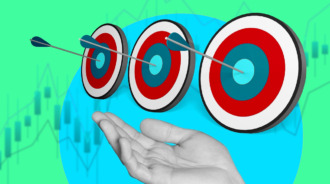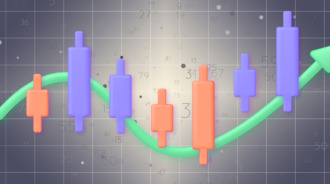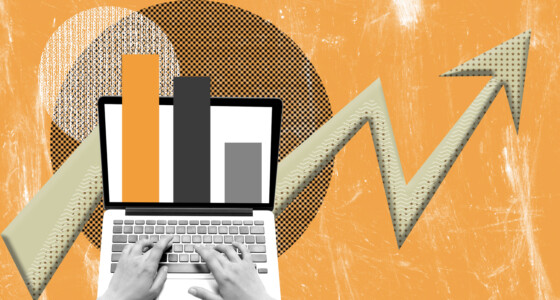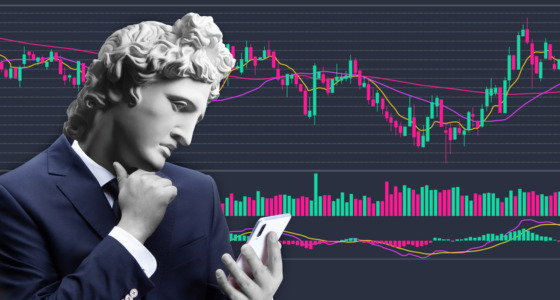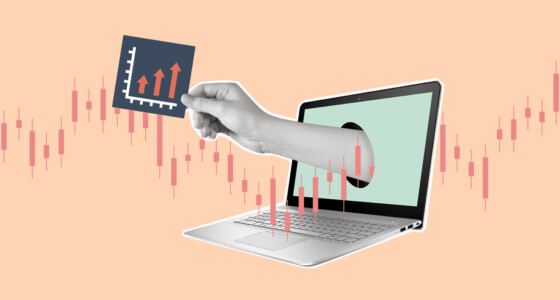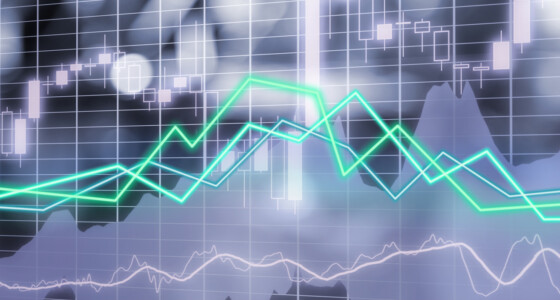

Buffett indicator explained
To put in simple terms, the Buffett indicator is the ratio of a specific country’s stock market capitalization to the country’s total GDP. If the ratio is too high, the market is likely to fall, and it’s expected to rise if it is too low. The Buffett indicator is not designed to be applied for a period of a day or week, rather, it predicts large-scale market trends based on many years of data.
The theory behind the Buffett indicator states: if the market capitalization is excessively low, it’s up to the free-floating excess capital to fill the gap, with the market going bullish as the result. On the other hand, if the stock market prices are too high when compared with GDP, the economy is not in a strong position to support ongoing and future investments, and thus the market will fall. The basic underlying assumption behind this theory states that the stock market reflects an economy’s ability to produce returns for its investors.
Undervalued vs Overvalued
More precisely, if the stock market capitalization is anywhere above 115%, it is considered overvalued. If it’s value is 75% to 90% of the GDP, it is at the right level, and if it is below 50%, it is very low. So, if the market is overvalued according to the Buffett indicator, does that mean it will soon crash? No, it’s not and there is no need to panic. The Buffett indicator was not designed to predict a market crash, but if the market is indeed overvalued, the returns will start to even out over the years. A typical Buffett indicator graph looks at follows:
This graph is just an example and doesn’t reflect any real-world data.
How is the Buffett indicator used?
If the market is overvalued, rather than being an alarmist, it’s best to use a simple yet effective way to deal with it, namely, to apply the same indicator to find markets where stocks are undervalued. Buying these countries’ indexes can be a smart way to ensure handsome returns over the coming years and to hedge against losses. There are still many markets in South America and Asia that have undervalued stocks.
Secondly, investors have the option to take the core principles of Buffett Indicator and apply them down to specific companies and sectors. Investors might be able to find a company with higher dividends than its competition, and this firm will most likely rise in value. Similarly, if there is a sector in the economy with a market value lower than its historical value, there is a good chance that it will go up.

Total market value
For the most part, the US stock market uses the Wilshire 5000 measurement to determine the aggregate value. This capitalization-weighted index is the main benchmark in the equity market of the United States. Monthly data may be pulled starting with 1971, but you also have daily data going as far as 1980.
The Wilshire-5000 index was made to show differences in the total market cap. For example, a 1-point increase in the index will suggest a $1 billion in the market. Based on the data derived from this index, traders can see changes in the total market value. This will further help them to calculate potential profits.
GDP
GDP, which is short for Gross Domestic Product, shows the US economy’s total annual production. The Bureau of Economic Analysis of the US Government measures this data quarterly, offering it to potential investors.
The GDP measures prior economic activities. That being said, it is also a static measurement. This means you will not receive any future forecasts, nor will you obtain valuation or expectations for economic changes. In other words, traders may not use it to see whether there is economic growth or not.
GDP data is calculated quarterly, a couple of months in arrears. As a result, the data published will pertain to a quarter that came to an end several months ago.
Criticisms of the Buffett indicator
Every metric may have its blind spots. None of them are showing precisely the relative valuation or health of the market. The Buffet indicator is no exception, which is why it gathered a fair amount of criticism. This can include the following:
Interest rates
The Buffett indicator looks over the stock market value and considers it greatly. However, it does not care about how a stock is valued in comparison to alternative investments (i.e., bonds).
For example, when the interest rate is high, bonds often pay great returns for the investor. As a result, stocks get fewer demands and lower prices. The opposite can also happen – a low-interest bond can raise the prices of stocks relative to bonds.
While bonds are not as common as stocks today, the absence of this technical indicator makes investors uneasy. Without these comparisons, one may not realize a market shift is coming their way.
International sales
One more criticism involves the compatibility of the Buffett indicator with international sales. To put it simply, the valuation of the stock market usually reflects international activity. GDP, on the other hand, does not.
It does not include things such as Amazon’s sales in Italy, even though the business is listed in the United States. This can lead to inaccurate readings as globalization is taking over. The total market value keeps increasing, but the GDP (a very important denominator) is not affected.
To sum it up
Buffett Indicator is one of the most reliable indicators in the stock market and is highly regarded in the investment world. Is Buffet Indicator valid for all markets? The answer is yes, but the basic condition is an absence of sudden events in the market. This indicator is not used to predict the sudden rise or fall of any market, but works as a tool that predicts long-term trends. This was the Buffett indicator explained!
